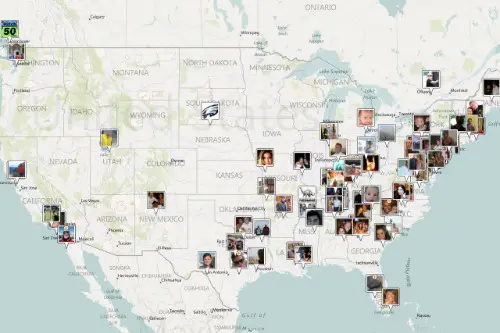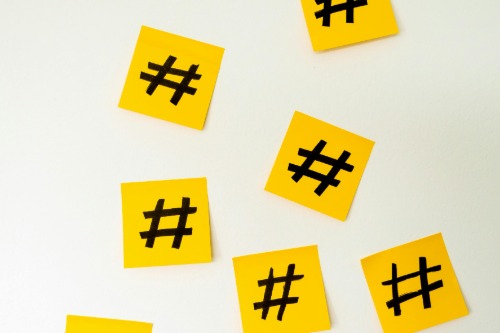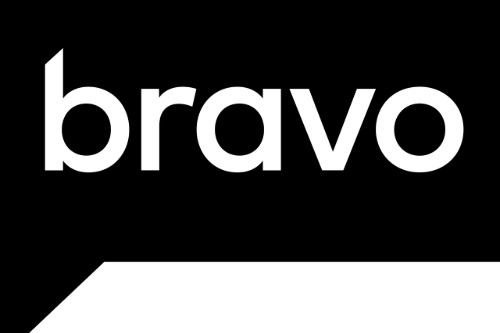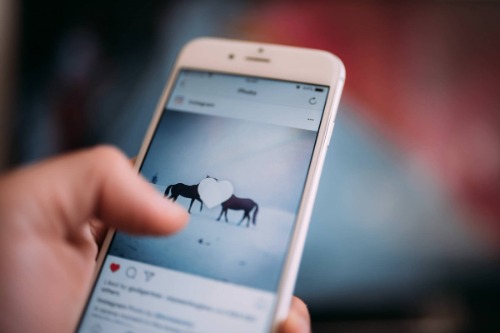1. Oversharing Personal Information

In the U.S., it’s pretty common for people to share intimate details about their daily lives, from relationship statuses to vacation photos, Fox 25 News reports. Social media platforms like Facebook and Instagram are full of people posting everything from what they ate for breakfast to their political views. It’s almost like an unspoken norm to put everything out there for friends, family, and sometimes strangers to see. But in many other countries, especially in Europe and Asia, this level of sharing is considered pretty strange.
In Japan, for instance, there’s a strong cultural focus on privacy, and many prefer to keep personal details to themselves. Posting about your day-to-day life so publicly could be seen as attention-seeking or unrefined in these cultures. In some European countries, such as Germany, people are more reserved when it comes to social media. They might share only carefully curated aspects of their life and tend to avoid oversharing.
2. Leaving Reviews for Everything

In the U.S., it’s practically a cultural norm to leave a review after trying a new product or visiting a restaurant, according to the Pew Research Center. Americans are often quick to rate and comment on their experiences online, whether it’s on Yelp, Amazon, or Google Reviews. This has become an easy way to share feedback and help others make decisions. For many, it’s almost second nature to write a review, whether positive or negative, after almost any service or purchase.
In many other countries, though, leaving reviews can seem excessive. In Japan, for instance, there’s a cultural tendency to avoid drawing attention to yourself, and leaving reviews could be seen as making a public statement that’s unnecessary. Similarly, in countries like Sweden, people may feel that reviews are best kept to a more private setting, rather than broadcasting them online. This level of engagement with review culture isn’t as widespread or expected in these places.
3. Sharing Your Location on Social Media

Location tagging is a favorite pastime for many Americans when they post photos on social media, according to Social Media Agency. Whether it’s a selfie at the Grand Canyon or a brunch spot, it’s become common practice to tell the world exactly where you are. It’s even become part of the experience to check in at places for your followers to see. For many, it’s a way of feeling connected to others and building a personal narrative online.
However, in other countries like South Korea and the UK, this practice is viewed as a bit strange. In South Korea, there is a strong cultural emphasis on personal safety and privacy, and people may avoid giving out their exact whereabouts. In the UK, people generally tend to keep their social lives more private, and location tagging may seem like an unnecessary risk. Sharing such precise details can be seen as exposing yourself to unwanted attention.
4. Vlogging Your Entire Day

Vlogging, or video blogging, has become a way of life for many Americans who document their daily activities online, according to Sage Journals. From family trips to simple errands, it’s not unusual to watch someone vlog every part of their day. While some see it as a way to connect with followers, others find it a bit excessive. For Americans, it feels like a way of sharing experiences, almost like inviting the world into your personal space.
But in countries like France or Italy, this type of personal exposure is considered unusual. French people, in particular, are known for valuing their privacy, and sharing the minutiae of everyday life might seem intrusive. In Italy, while there’s a rich history of storytelling, the act of vlogging an entire day could feel forced or self-indulgent. It’s simply not the norm to document every moment for a public audience in these places.
5. Using Hashtags for Everything

Hashtags have become a huge part of online culture in the U.S., especially on platforms like Twitter, Instagram, and TikTok. American users add hashtags to just about everything: photos, statuses, and even casual comments. They’ve turned into a kind of digital shorthand to get your content noticed and categorize your posts, but according to the American Marketing Association, they sometimes overuse them. Many people will even add hashtags to mundane posts like #FeelingGood or #JustWokeUp.
In other countries, though, this hashtag obsession can seem strange or even excessive. In the UK, people are less likely to use hashtags in casual posts, and they often view them as a marketing tool rather than a social tool. In countries like Japan, hashtags are often more purpose-driven and not used just to make a post more searchable. Using them excessively can make a post seem cluttered or self-promotional rather than genuine.
6. Extreme Fandom for Celebrities

Americans often go all-out when it comes to their admiration for celebrities, and it’s not unusual to see people creating fan accounts or even collecting autographs and memorabilia. From attending conventions to starting online fan clubs, the level of devotion can be extreme. This celebrity worship can even translate into online interactions, with fans commenting and posting about their favorite stars almost constantly. It’s part of the culture of idolizing and supporting celebrities, especially in Hollywood.
However, in countries like Japan, where there is a more reserved and humble attitude toward public figures, such fandom might be considered strange. While Japan certainly has its own celebrity culture, there’s more of a focus on the achievements of individuals rather than their personal lives. In European countries like Sweden, excessive idolization can be seen as a bit tacky, with many choosing to focus on their own lives rather than obsessing over someone else’s. The more intense side of American fandom often feels unnecessary or even unhealthy to people from these cultures.
7. Sharing Political Views Publicly

In the U.S., social media is often used as a platform for openly sharing and debating political views. Whether it’s on Twitter, Facebook, or even Instagram, it’s not uncommon for people to post about their political opinions, sometimes in heated debates. This has become a way for Americans to engage with the political landscape, often with strong opinions and no filter. It’s also seen as a way of rallying others who share similar beliefs.
But in many other countries, this type of public political expression is viewed with skepticism. In the UK, political discussions are often kept more private, especially online, as people fear alienating friends and family. In countries like Switzerland, neutrality is valued, and discussing politics so openly might feel uncomfortable or confrontational. In these places, keeping political views to oneself is often seen as a way of maintaining harmony and avoiding unnecessary conflict.
8. Liking Your Own Posts

In the U.S., it’s not unusual for someone to like their own posts on social media, whether it’s a photo or a status update. Some people do it for a little self-affirmation, while others might do it to boost their engagement numbers. It’s seen as a simple way to interact with your own content and get the ball rolling when a post is first made. The practice has even become somewhat of a meme in American internet culture, making light of the self-like phenomenon.
But in many other countries, this practice is seen as a little odd or even self-centered. In Germany, for example, there’s a tendency to avoid appearing overly self-congratulatory or self-absorbed, and liking your own content could be considered vain. Similarly, in countries like France, where subtlety is key, such overt self-promotion is frowned upon. Liking your own posts could be viewed as an attempt to artificially inflate your online presence in these more reserved cultures.
9. Using Emojis in Professional Communication

Emojis have become a staple of online conversations in the U.S., and they’ve worked their way into everything from text messages to emails. Whether it’s adding a smiley face to a text or throwing in a thumbs-up to approve something, emojis are seen as a lighthearted and effective way to communicate emotions. In fact, in some American workplaces, it’s perfectly acceptable to use emojis in professional communications, especially with close colleagues or in casual work environments. It’s a way to keep things friendly and approachable.
However, in many countries around the world, this practice can be considered highly unprofessional. In places like the UK and Germany, business emails and messages are typically more formal, and using emojis could be seen as immature or inappropriate. The use of emojis in professional contexts can create confusion, especially if the tone is misinterpreted. In these cultures, it’s expected that people maintain a certain level of professionalism, which includes the way they communicate online.
10. Buying and Selling Secondhand Goods Online

In the U.S., online marketplaces like eBay, Facebook Marketplace, and Craigslist have made buying and selling secondhand goods a huge part of the shopping culture. From furniture to electronics, it’s common to find people trading items to save money or reduce waste. The convenience of being able to find a bargain or sell unused items is a big part of this trend. Plus, it helps reduce the environmental impact of constantly buying new products.
But in countries like Japan, secondhand goods are often viewed with more hesitation. There’s a cultural preference for new, pristine items, and buying used goods can carry a stigma, especially for things like clothing or electronics. While Japan does have secondhand shops, it’s not as widely embraced as it is in the U.S. In some European countries, secondhand shopping is popular but more associated with vintage or antique items rather than everyday goods.
11. Online “Gifting” to Strangers

In the U.S., gifting virtual items to strangers is a common practice, especially on platforms like Twitch and through apps like Venmo or PayPal. Americans often send small amounts of money or virtual gifts to people they admire online, whether it’s a content creator or a random person in need. It’s also common to send gifts like stickers or virtual items in gaming environments as a sign of support. This kind of gifting can foster a sense of community and connection across digital spaces.
However, in countries like Japan, this might seem strange or even inappropriate. The act of gifting money to strangers, especially without a clear, personal connection, can feel uncomfortable. Japanese culture places a high value on formality and respect in social interactions, so such informal acts of generosity are less common. In many places, virtual gifting could be perceived as overly sentimental or even suspicious, depending on the context.
12. Using Texting Shortcuts Like “LOL” or “OMG”

In the U.S., abbreviations and acronyms like “LOL,” “OMG,” and “BRB” are basically a second language when texting. Americans have even made texting a whole art form, using tons of shortcuts to keep things casual and quick. “LOL” is so popular that people sometimes use it in face-to-face conversations as a part of their natural speech. To many, it’s just the way to communicate online, and it’s almost become universal.
But in places like Japan and Germany, such shorthand feels out of place. Texting in Japan can be very formal, with people using proper sentences and avoiding slang or short forms unless they’re very close friends. Germans also tend to prefer full, clear sentences in their digital communications. The use of shortcuts might come across as overly informal or even unprofessional in these cultures.


